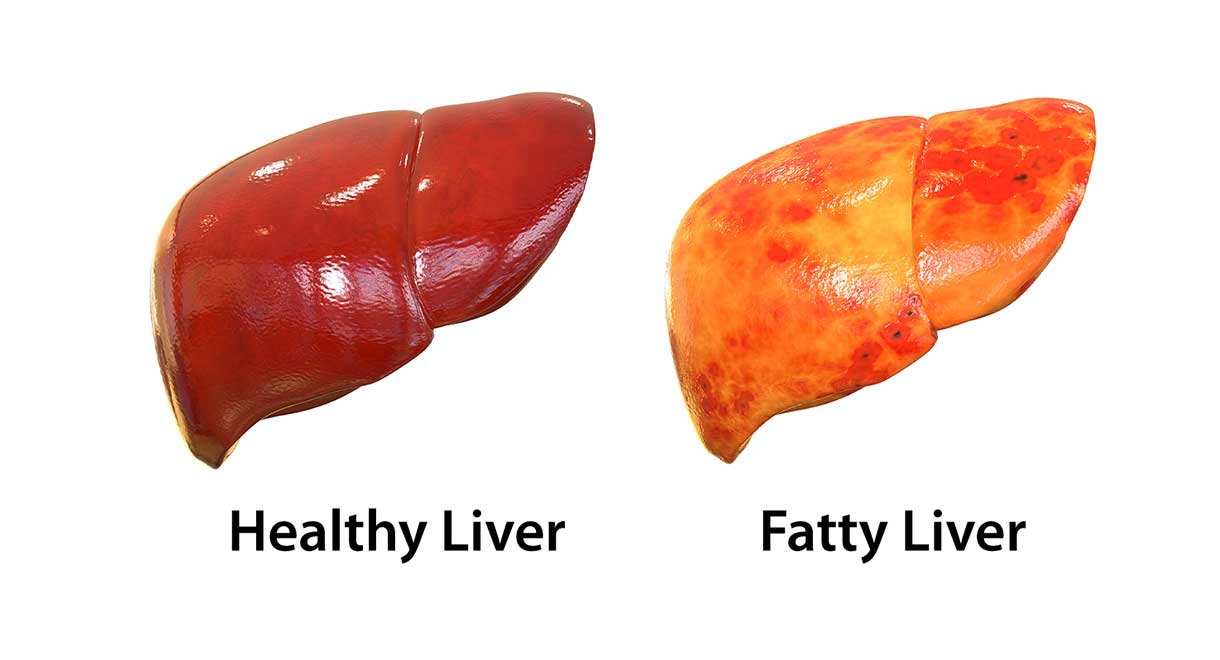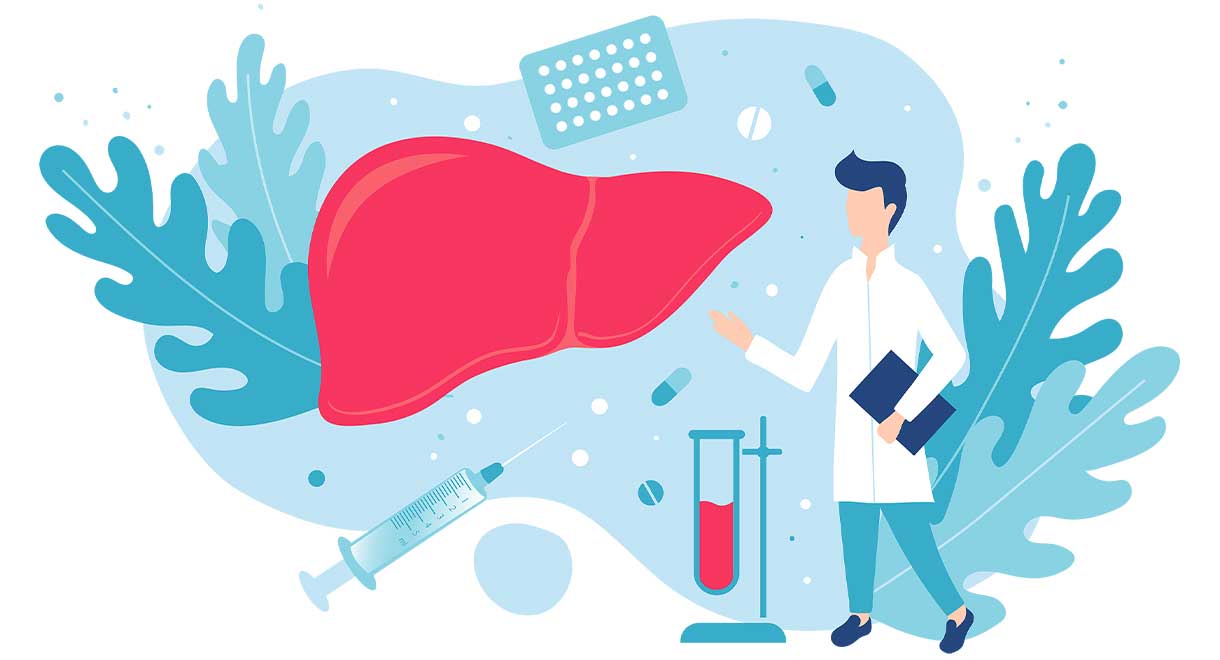How Healthy Is Your Liver?
The most common causes of liver dysfunction are fatty liver, an overworked liver, an inflamed liver, or a liver overloaded with toxins.
Your liver can be checked with an ultrasound scan of the abdomen. This also checks for gall stones. The scan will show if your liver is fatty and also if there are any cysts or tumors in it. It will also show the texture, shape and size of the liver. In cases of severe fatty liver, the liver is often enlarged.
Your liver can also be checked with a blood test for liver function; this may show some of the liver enzymes are raised, which shows inflammation of the liver. Raised liver enzymes can be caused by fatty liver, viral infections, excess alcohol, the use of some prescription medications or pain killers, and drug-induced liver damage.

Of all the organs in the body, the liver is most able to repair and regenerate itself and responds quickly to a healthy low carbohydrate diet and a comprehensive liver formula, such as the clinically proven Livatone Plus.
Supplements to help the liver can be discussed with your weight loss detective. For a free eBook on the liver check out “The Vital Principles For Liver Cleansing” on Liver Doctor’s website.
Better thyroid function can help a fatty liver
A clinical study published in the International Journal of Endocrinology in 2017 showed that treatment of mild low thyroid conditions with thyroid hormone may be an effective treatment for controlling fatty liver. Fatty liver is also known as Non-Alcoholic-Fatty-Liver-Disease (NAFLD).
This study demonstrated a beneficial effect of thyroid hormone replacement therapy on NAFLD in patients with low thyroid conditions (hypothyroidism) including those with high cholesterol and elevated liver enzymes. The study concluded that low thyroid conditions can be an independent factor in the cause of fatty liver disease and recommended early detection of thyroid problems in patients with fatty liver.
This is very important research, as fatty liver disease is very common and often leads to weight excess and type 2 diabetes and may progress to cirrhosis of the liver. Be aware that mild low thyroid conditions are also very common and often remain undetected and untreated. Blood tests for thyroid function need thorough assessment as mild low thyroid is considered “normal” by many doctors.
The thyroid hormones, known as Thyroxine (T4) and Tri-iodothyronine (T3), regulate the basal metabolic rate of all cells, including liver cells (hepatocytes), and help the liver to metabolize fat and detoxify the bloodstream. The liver in turn metabolizes the thyroid hormones turning T4 into the more active T3 which is essential for faster body metabolism. Some overweight people with both low thyroid and fatty liver need to take a small dose of the more active thyroid hormone called Triiodothyronine (T3). This can make a huge difference to weight loss success and energy levels.
The liver and thyroid have a co-dependent relationship because you need a healthy thyroid to have a healthy liver and you need a healthy liver to have efficient use of thyroid hormone. There is an intricate relationship between the thyroid gland and the liver in health and disease.
Another study found that imbalanced thyroid function and type 2 diabetes mellitus (T2DM) are both associated with increased risks of poor outcomes in Non-Alcoholic-Fatty-Liver- Disease (NAFLD). The study found that type 2 diabetics with NAFLD and seemingly “normal thyroid function blood tests” were more likely to have insulin resistance and a thyroid hormone resistance-like manifestation – in other words their thyroid hormones and their insulin did not work correctly. So even though their blood tests looked “normal” they really were suffering from a low thyroid condition. The study looked at the drug Metformin to see if it could decrease the double-resistance state, especially in obese patients. The outcome was positive, so it is important to overcome the resistance of the body cells to the effects of both the insulin and the thyroid hormones. The supplement Berberine has been clinically proven to work as well as Metformin does, but without the side effects. Speak to your weight loss detective about the wonderful health benefits of Berberine.


This information was very helpful. Thank you.
You’re very welcome, Linda.
Kind regards,
Jessah Shaw
Nutritionist